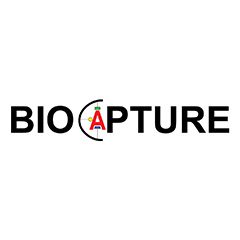Imprinted micro and nanoparticles for cancer associated glycan motifs
Host Institute
Department of Biomedical Sciences, Malmö University
Host Country
Sweden
Start date
During the period November 1st 2016-February 1st 2017.
The candidate will be employed at the Department of Biomedical Sciences, Faculty of Health and Society at Malmö University and will be enrolled in the department PhD program under the supervision by Prof. Börje Sellergren.
Project description
A major challenge in the war against cancer is to find ways to diagnose and treat the disease at an early stage where the cancer is still curable. This calls for sensitive and effective diagnostic tools that can sense the cellular state early in the process. One “tell tale” sign comes from the glycan chains constituting the outermost surface of the cell. Tumor cells tend to produce increased levels of glycoconjugates containing sialic acid (SA), that imparts a negative charge to the glycan chain (Fuster MM et al. Nat. Rev.Cancer 2005, 5:526-542). Increased sialylation is often associated with the increased invasive potential of tumor cells in clinical tumors as well as cultured cell lines, and this feature correlates with poor prognosis (Bogenrieder T et al. Oncogene 2003, 22:6524-6536). There is therefore a need for diagnostic tools for analyzing and determining SA glycosylation motifs.
In this project you will develop ”plastic antibody” based glycocapture technology which we believe will significantly advance the state of the art. Molecularly imprinted polymer (MIP) nanoparticle and microparticles will be tailored for glycospecific enrichments or fluorescent based sensing applications targeting tumor specific glycan motifs. The MIPs will be forwarded to academic and industrial partners with expertise in glycomics and cancer diagnostics who will use them as plastic antibodies for glyco-specific capture and detection. We expect your work to result in unique affinity tools filling a gap in modification specific glycomics.
The project will include secondments to University of Copenhagen, Copenhagen (DK) –glycomics techniques; Federal Institute for Materials Research, BAM, Berlin (Germany) – molecular imprinting and fluorescent sensor technology; University of Strathclyde, Glasgow (UK) – molecular imprinting technology; Proteome Sciences, London (UK) – Protein assay technology; Linneaus University (Sweden) and Pavia University (Italy) – theoretical modeling and characterization; Biotage, Lund (Sweden) – Analytical method validations.
Apart from carrying out research within these areas the applicant is expected to take responsibility for the maintenance of instruments and other routine tasks of the group as well as to supervise students at the BSc or MSc level and will have the opportunity to take part in teaching. The candidate will be enrolled in the 4 year PhD-program at the Faculty of Health and Society and will be expected to complete a PhD including completion of local academic and network wide training requirements. The research topic is “Biomedical sciences” and the Faculty examines Doctors of Philosophy.
Group description
The imprinting group at Malmö University carries out research in the field of molecular imprinting and related supramolecular, polymer and materials chemistry. Part of the research is focused on fluid or cell surface biomarker detection and development of proteomics, lipidomics and glycomics discovery tools with bearings on several life science applications. The research comprises host guest chemistry of imprinted receptors, and their materials chemistry, colloid and surface chemistry.
The group is part of the educational profile “Biological Interfaces” which focuses on the interplay between materials, biomolecules and cells at the molecular, nano, micro and macroscopic levels. The research at the faculty is also linked to the research programme Biofilms – Research Center for Biointerfaces, which combines research with medical, dental, food and environmental applications at three faculties, in close collaboration with regional industry.
Institute description
Malmö University offers almost 100 education programmes and 500 courses. Most of the programmes are vocational and interdisciplinary, especially our multidisciplinary research programmes. The university is committed to diversity in employment and take a critical approach to knowledge and the impact of globalisation. Malmö University has about 25 000 students and is situated in Malmö, the third largest city in Sweden and part of the “Greater Copenhagen region”, just by the sea.
Ideal candidate
The successful candidate will have a masters’ degree (or equivalent) in chemistry preferably organic chemistry, polymer chemistry, biochemistry or analytical chemistry. Experimental laboratory experience is required and candidates with experience directly related to the research topic of the position outlined above will be given preference.
Working conditions and benefits
The candidate will become an employee of the Department of Biomedical Sciences and receive a competitive monthly gross salary in accordance with the EC Marie Sklodowska-Curie rules. The contract period will last for 4 years.
How to apply
Please submit your application prior to the deadline following the instructions on the MU website: http://mah.se/ledigaanstallningar, under the Marie Curie PhD openings: REK 2.2.1-2016/148 and REK 2.2.1-2016/149.
Contact
For more information on this position, contact the hiring party: Prof. Börje Sellergren.
E-mail: borje.sellergren@mah.se
Phone: +46-703620062
